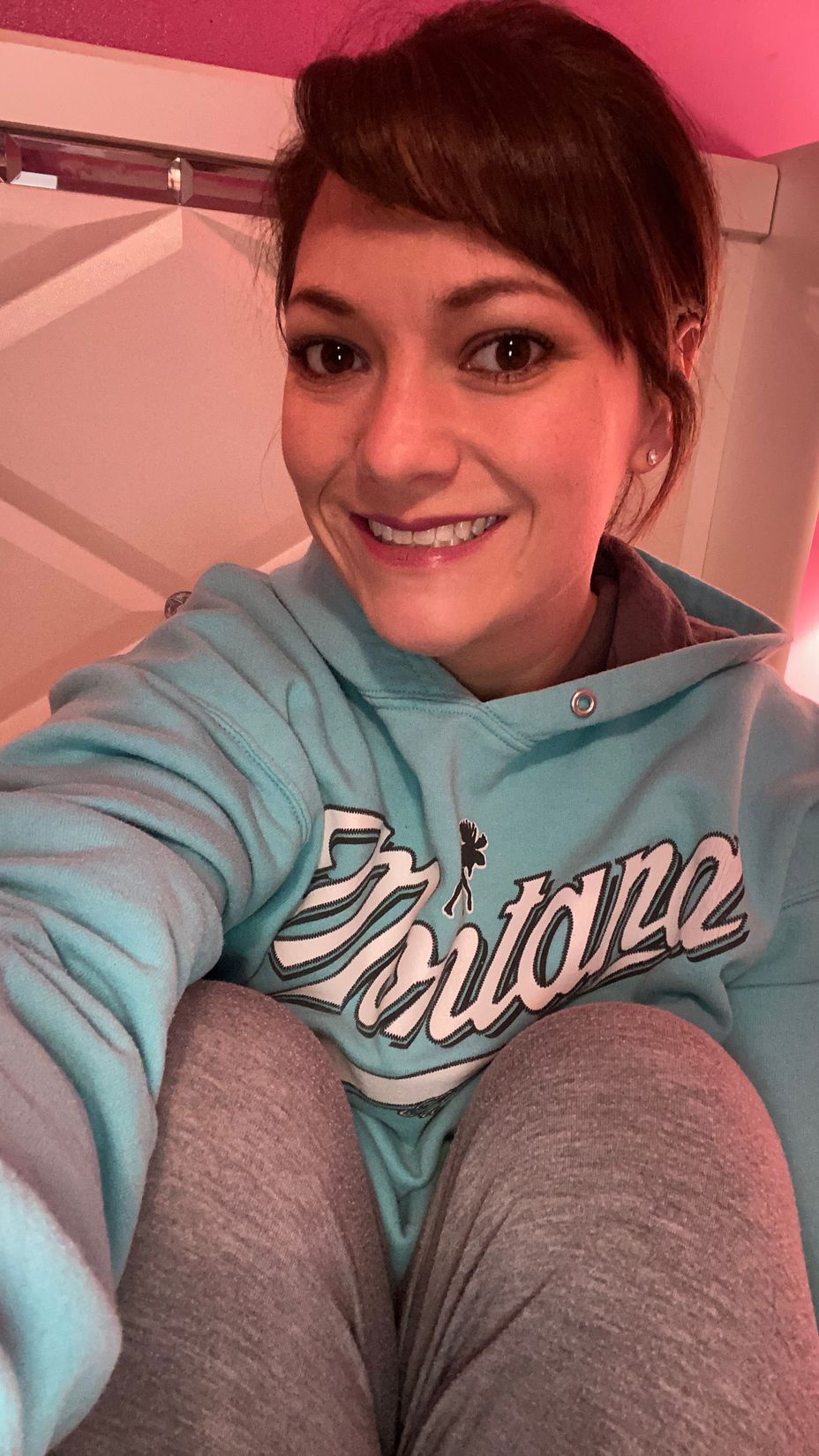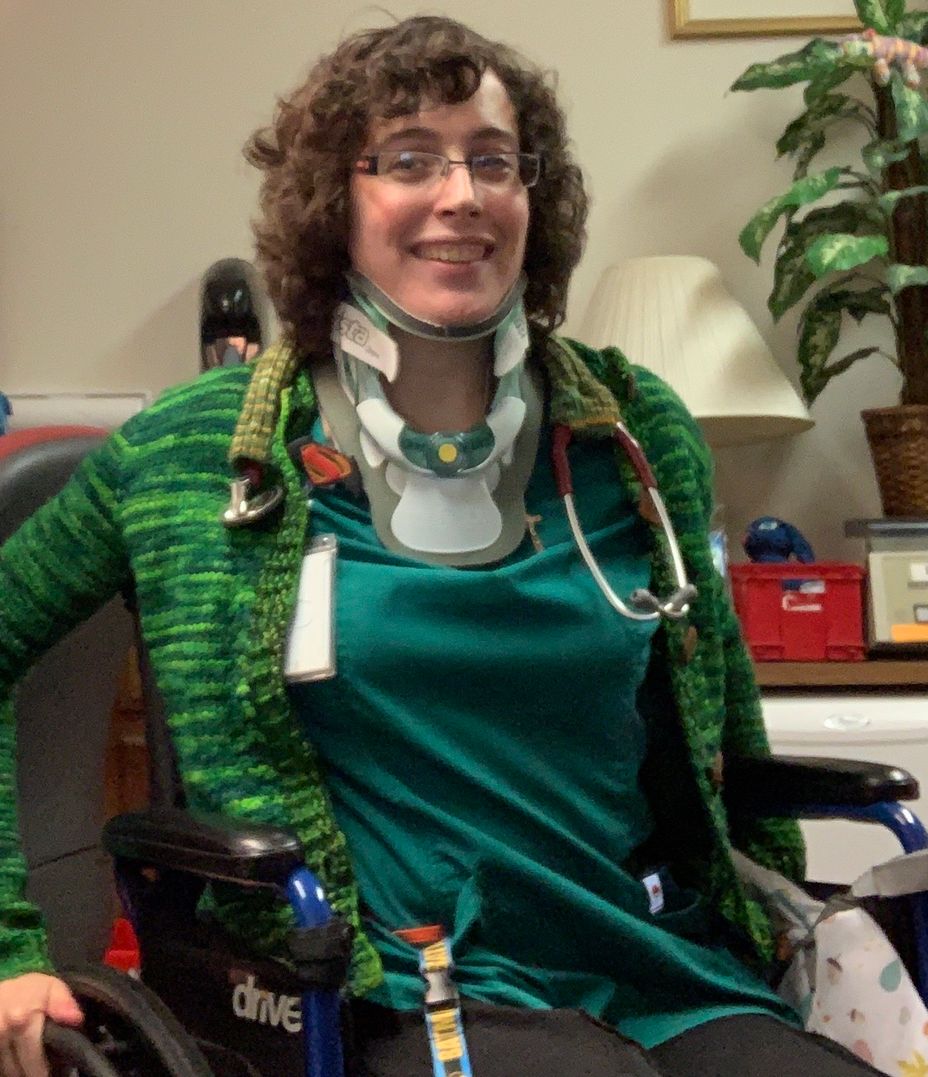When patients walk in for their first appointment with their psychiatrist, they are startled to find that the chick in the wheelchair and neck brace is their nurse. And everyone thinks I had a car accident.
“Oh, no,” I tell them, smiling, “my connective tissue is just wonky and makes my spine and skull unstable. The brace keeps blood flow going to my brain.”
They don’t know the soul-crushing fatigue. They don’t know the nausea, the pain prior to the brace, the lightheadedness, and the feelings that I might faint. They don’t know that there are many days that I get into work and I don’t want to be there. That I would so much rather hide in my room and never come out again. They don’t know that there are many mornings that I wonder how I’m going to get through this day, that I cry and wonder how much longer I can continue doing this job I love. That I wonder who I will be when I no longer can do it. They don’t know how helpless I feel to do anything about it.
“How are you?” coworkers ask.
“I’m vertical,” I tell them. Because sometimes that alone seems too much to ask from my body,
I try to smile and I try to fight through. Most days, I succeed, even if I end up feeling drained by the end of the day and by the weekend.
But I can tell my patients that I understand their battles with FMLA; that I’ve been there. That it’s okay to struggle daily with a chronic condition that medicines might help but won’t cure. That there can be ways to make the world work for our unique needs.
When I tell them, I hope they can take strength from the words. That they can’t see the cracks in my own armor; can’t see my own fears, insecurities, and physical struggles.
I’m often not okay. But I’m vertical. That’s a step in the right direction. #CervicalInstability #MCAS #Stillvertical #Alantoaxialinstability #MedicalZebra #Craniocervicalinstability #Walkingwheelchairuser #LivingWithPOTS #HypermobileTypeEDS




